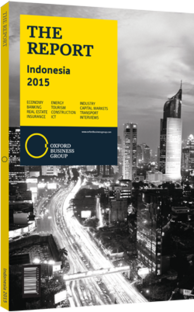Andrinof Chaniago, Minister of the National Development Planning Agency (Bappenas): Interview

Interview: Andrinof Chaniago
What steps can the government take to ensure economic growth and social development?
ANDRINOF CHANIAGO: Thanks to previous improvements, there is no need to revise specific laws – it would be enough to revise the executive regulations. The most important thing is to focus on synchronising different sectors of the economy. Improving coordination between the provincial and national governments is certainly a priority, as is maintaining the present momentum of growth. To that end, the government is planning to avoid a slowdown of existing development, while also emphasising new areas of development.
However, social impacts must also be considered as part of the process, and in this regard it is very important to improve macroeconomic fundamentals and strengthen the relationship between the various areas of the economy and different social classes. In the end, all of our efforts to grow and develop our economy to become a strong and powerful nation must improve the lives of those at all levels of Indonesian society.
How is the government's goal of equitable development shaping its policies to attract investment?
CHANIAGO: First, the central government has focused on providing incentives for local governments to achieve specific targets. Second, to avoid further engagement with parliament and save a great deal of time, we need to revise and improve the content of the regulations to ensure that both the president and the ministries can easily reach an agreement. To provide some greater detail, roughly 40% of total investment comes from the public budget, companies account for around 10%, another 10% comes from local governments and the remaining 40% or so is contributed by private investors.
What efforts are currently under way to promote efficiency in the delivery of infrastructure projects?
CHANIAGO: We have an internal audit agency that is now under the umbrella of the president. The agency’s main role is to oversee the execution of development programmes starting from the initial stages and supervise the post-audit procedure to make sure financial resources are wisely invested.
However, there is also an e-procurement agency under the umbrella of the presidency, called the LKPP, which aims to conduct procurement-based procedures online in order to simplify the bureaucratic system and guarantee its transparency.
What are the key priorities of this administration's National Medium-Term Development Plan?
CHANIAGO: Our priority is to expand several sectors across the nation, such as food security, maritime and fishery, energy, tourism and manufacturing, as well as accelerate rural development, mainly on Java Island. We are also looking to support sustainable growth of the lower and middle classes by increasing their economic productivity. The main goal of the plan is based on a strategy to improve the quality of living standards, as well as the quality of development itself.
In order to reach this target, the government has increased support incentives for infrastructure initiatives, reformed licensing procedures and provided services and expertise to investors in the process of land acquisition. In the past many projects were postponed due to a lack of facilities. However, investing is a long-term, high-risk endeavour, and the government therefore needs to meet investors halfway by providing clearer regulation and more secure licensing procedures to improve legal certainty.
Crucially, these are now also the main topics of President Jokowi’s cabinet, which is focused on simplifying the bureaucratic system. In this regard, we see a lot of value in a major facility like the one-stop shop licensing service, which is already active. While we have yet to see the benefits of this programme, if everything goes according to plan, we should see an improvement in foreign direct investment levels, as well as the speed at which investment takes place.
You have reached the limit of premium articles you can view for free.
Choose from the options below to purchase print or digital editions of our Reports. You can also purchase a website subscription giving you unlimited access to all of our Reports online for 12 months.
If you have already purchased this Report or have a website subscription, please login to continue.

